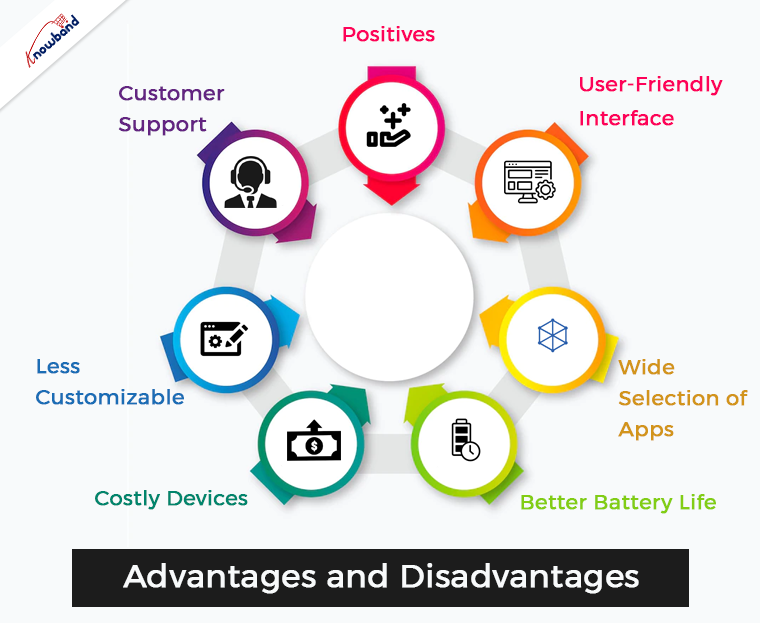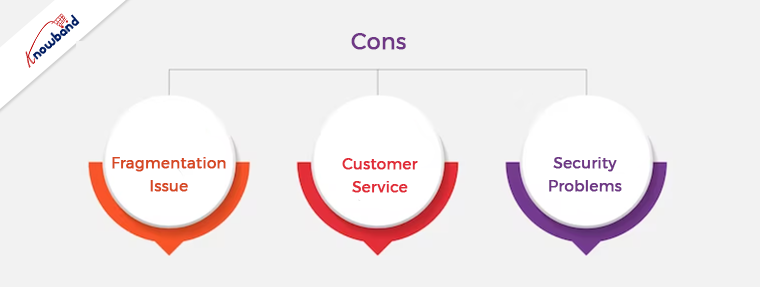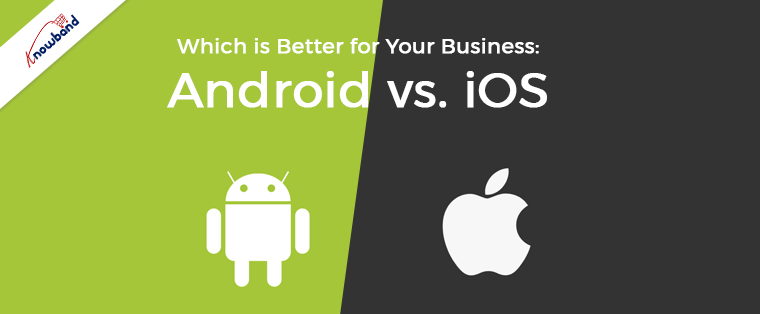The popularity of the Android and iOS platforms among people worldwide is undeniable. Which platform is better for your business, though both offer advantages and disadvantages? In order to assist you in selecting the platform that is best for you, we will compare and contrast Android and iOS in this blog post. The user-friendly design and extensive app selection of iOS are well known. On the other hand, Android is renowned for its adaptability and customization possibilities. Which one ought you to pick then?
iOS is a superior option if you’re searching for a user-friendly platform with a large selection of apps. Android is a better option if you’re seeking a platform that is more adaptable and adjustable. In the end, it truly comes down to your unique demands as a company. iOS is the best choice if you require a user-friendly platform with lots of app possibilities. Android is a better option if you require a platform that is more adaptable and adjustable. Whatever platform you select, be sure it is appropriate for your company.
Use of the iOS Operating System for Business:
Advantages and Disadvantages
Numerous companies are forced to decide between Android and iOS. Due to the merits and cons of each platform, choosing one might be challenging. We’ll examine the benefits and drawbacks of utilizing iOS for your business in this blog post.
Advantages:

User-Friendly Interface:
One of iOS’ main benefits is how easy it is to use. For individuals who are less tech-savvy, the user interface is simpler and more intuitive, making it simpler to use.
Wide Selection of Apps:
iOS’s extensive selection of apps is another perk. There are several apps available for the platform, giving you a wide range of alternatives.
Better Battery Life:
The longer battery life of iOS is another benefit. The platform uses less battery power since it is more effective. As a result, you won’t have to worry about your smartphone running out of power when using it for longer periods of time.
Another benefit of using iOS is that it is more secure. Because Apple takes security very carefully, iOS is safer than Android. Because of this, it’s a suitable option for companies that handle sensitive data.
Disadvantages
Costly Devices:
One of the major drawbacks of using iOS is its pricey hardware. Apple items are more frequently associated with superior quality, which raises their price.
Less Customizable:
iOS’ lack of customization is another drawback. The platform limits the amount of change you can do compared to Android. For companies that require a lot of customization possibilities, it might not be the greatest option.
Android’s fragmentation issue is one of the greatest issues with the platform. It might be challenging to create apps that function on all devices because there are so many different Android operating system iterations available.
Customer Support:
Apple is renowned for its top-notch support. You can typically rely on Apple to assist you in resolving issues with your iOS device. On the other hand, Android does not offer the same level of customer support.
Android Operating System for Business:
Pros and Cons
Numerous companies are forced to decide between Android and iOS. Due to the merits and cons of each platform, choosing one might be challenging. We’ll examine the benefits and drawbacks of utilizing Android for your business in this blog post.
Advantages:
More adaptable and customizable
The fact that Android is more adaptable and adjustable than iOS is one of its major advantages. This implies that you can customize the platform more to meet your demands.
Open Source:
Android’s open-source nature is another benefit. This implies that anyone can create the platform, giving you a wide range of alternatives.
Better Battery Life:
The longer battery life of Android is another benefit. The platform uses less battery power since it is more effective. As a result, you won’t have to worry about your smartphone running out of power when using it for longer periods of time.
Lower Cost:
One of the main benefits of utilizing Android is that it is less expensive. Android devices are frequently less expensive than their iOS counterparts, making them a better option for budget-conscious enterprises.
Cons:

Fragmentation Issue:
The fragmentation issue with Android is one of its main issues. It might be challenging to create apps that function on all devices because there are so many different Android operating system iterations available.
Customer service:
Android’s customer service is yet another drawback. Although there are some businesses that provide excellent customer service, it is not as common as it is for iOS devices.
Security Problems:
The security problems with Android are another drawback. The platform’s openness makes it simpler for malicious applications to infiltrate your device. For companies that manage sensitive data, this can be a serious issue.
It’s time to choose the platform that is best for your company now that you are aware of the differences between Android and iOS. Android is a better option if you require a platform that is more adaptable and adjustable. However, iOS is the best option if you require a user-friendly design and a large range of apps. Whatever platform you select, be sure it is appropriate for your company.
Conclusion
Businesses must take their demands into account when picking between Android and iOS. Android would be a better option if they need a platform that is more adaptable and customized. However, iOS can be the best option if they require a user-friendly design and a large range of apps. The platform that best suits the company’s needs should be chosen.

